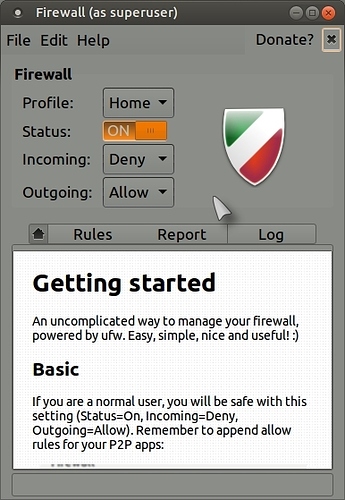I’ve been thrilled since I discovered that my ASUS router resolved DNS queries for local hosts. No more schlepping around hosts files! I expected and found the same behavior in pfSense when I set that up as a firewall about a week ago. Yesterday I installed Ubuntu-Mate 16.04.1 on my desktop and that behavior is inexplicably missing. For some reason, this host (which gets it’s IP via DHCP) is pointing to external DNS servers which do not resolve hosts on my LAN. Before this install I was running 16.10 and had the same difficulty which was fixed by modifying /etc/nsswitch.conf as directed in this post: http://askubuntu.com/questions/837982/how-to-configure-local-dns-lookup-in-ubuntu-16-10/838395#838395. That seems not to work for this issue in 16.04.
I did try purge/reinstall libnss-resolve later in the thread. It worked once. Following reboot the problem was back and was no longer fixed by this purge/reinstall.
Here’s what I see:
hbarta@olive:~$ cat /etc/resolv.conf
# Dynamic resolv.conf(5) file for glibc resolver(3) generated by resolvconf(8)
# DO NOT EDIT THIS FILE BY HAND -- YOUR CHANGES WILL BE OVERWRITTEN
nameserver 8.8.4.4
nameserver 2001:4860:4860::8888
nameserver 2001:4860:4860::8844
search localdomain
hbarta@olive:~$
hbarta@olive:~$ cat /etc/nsswitch.conf
# /etc/nsswitch.conf
#
# Example configuration of GNU Name Service Switch functionality.
# If you have the `glibc-doc-reference' and `info' packages installed, try:
# `info libc "Name Service Switch"' for information about this file.
passwd: compat
group: compat
shadow: compat
gshadow: files
hosts: files mdns4_minimal [NOTFOUND=return] resolve dns
networks: files
protocols: db files
services: db files
ethers: db files
rpc: db files
netgroup: nis
hbarta@olive:~$
Another host which does not have this problem looks like:
hbarta@yggdrasil:~$ cat /etc/resolv.conf
# Dynamic resolv.conf(5) file for glibc resolver(3) generated by resolvconf(8)
# DO NOT EDIT THIS FILE BY HAND -- YOUR CHANGES WILL BE OVERWRITTEN
nameserver 127.0.1.1
search localdomain
hbarta@yggdrasil:~$ cat /etc/nsswitch.conf
# /etc/nsswitch.conf
#
# Example configuration of GNU Name Service Switch functionality.
# If you have the `glibc-doc-reference' and `info' packages installed, try:
# `info libc "Name Service Switch"' for information about this file.
passwd: compat
group: compat
shadow: compat
gshadow: files
hosts: files mdns4_minimal [NOTFOUND=return] resolve dns
networks: files
protocols: db files
services: db files
ethers: db files
rpc: db files
netgroup: nis
hbarta@yggdrasil:~$
Both are running 16.04 and the Mate desktop though I think the other one was Xubuntu to which I added Mate. Both have the same dns and dhcp related packages installed:
hbarta@yggdrasil:~$ dpkg -l|egrep "dns|dhcp"
ii avahi-dnsconfd 0.6.32~rc+dfsg-1ubuntu2 amd64 Avahi DNS configuration tool
ii dnsmasq-base 2.75-1ubuntu0.16.04.1 amd64 Small caching DNS proxy and DHCP/TFTP server
ii dnsutils 1:9.10.3.dfsg.P4-8ubuntu1.3 amd64 Clients provided with BIND
ii isc-dhcp-client 4.3.3-5ubuntu12.6 amd64 DHCP client for automatically obtaining an IP address
ii isc-dhcp-common 4.3.3-5ubuntu12.6 amd64 common files used by all of the isc-dhcp packages
ii libavahi-compat-libdnssd1:amd64 0.6.32~rc+dfsg-1ubuntu2 amd64 Avahi Apple Bonjour compatibility library
ii libdns-export162 1:9.10.3.dfsg.P4-8ubuntu1.3 amd64 Exported DNS Shared Library
ii libdns162:amd64 1:9.10.3.dfsg.P4-8ubuntu1.3 amd64 DNS Shared Library used by BIND
ii libnss-mdns:amd64 0.10-7 amd64 NSS module for Multicast DNS name resolution
hbarta@yggdrasil:~$
The DNS servers are the ones configured in pfSense and I am at a loss why one host winds up with local DNS while the other uses the ones that pfSense should be using.
Help resolving (groan  ) this is most welcome.
) this is most welcome.
Thanks!



